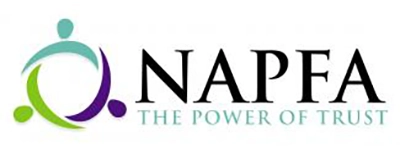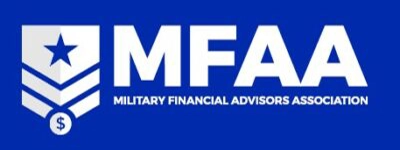
Burnt Gas Can’t be Trapped
There’s a saying that trapped gas and runway behind you are two frustrating and useless things. Untouched limits in your TSP and IRA should be on the same list for fighter pilots. Here’s why:
You’re a fighter pilot and you not only make decent money today; you’re almost certainly going to make a lot more in the future regardless of what follow-on career path you choose. If income taxes don’t bother you now, there’s a high pK they will as you start your enroute descent to social security. Let’s assume that you’re money-savvy enough to know that you want to run up the score board on your retirement savings in order to retire early, live high on the hog, leave a pile of cash to your kids, give to charity—you pick the reason. Then you know you’ve got to be efficient in your retirement savings, but there’s always competition for your dollars
Here’s an example: A 42-year-old O-5 retires at 20 years and gets a pre-tax pension of about $55K. This silverback gets a post-military job making $170K. Even without a spouse’s income, this former steely-eyed killer is now pulling down $225K, comfortably into the 24% tax bracket in 2020.
Now, on active duty, this pilot used the “4-I-4-T” order of operations for optimizing investment location. Going back just a year, this pilot was a 19-year O-5, who’s spouse didn’t currently work outside the home, and made about $150K.[1] If this pilot wanted to try to save 15% of income towards retirement, then $22.5K was the target. This pilot probably didn’t switch to the BRS, so assume that there’s no employer match. Thus, the first $12K of “4-I-4-T” goes into IRAs at $6K each for the pilot and spouse. This leaves $10.5 for investment into the TSP and no funds go into a taxable brokerage account.
This is a great amount of savings to be sure. That $22.5K compounded for the next 25 years at 9% could be as much as $194K. The only problem with this situation is that it leaves $9K of trapped gas – unused TSP capacity that is only available in the year the money the pilot earned it. If the pilot saved the full $12K in IRAs and $19.5K (the 2020 limit) in the TSP for a total of $31.5K, the compounded savings at retirement could be $271K. But, let’s admit it– even though the pilot makes $1K more per month than non-rated officers, and even though $150K might be an undershoot due to an annual Aviation Bonus, $22.5K is a LOT of money to save each year. However, most experts recommend saving 10-20% of income for retirement, so it’s not outlandish.
Fast-forward to the first year in the civilian sector… If this pilot is keen on saving 15%, then when the combined paycheck of $225K rolls in after getting a retirement pin, then 15% is $33,750. With combined TSP (or 401k in the new job) and IRA limits (for a married couple) for people under age 50 at $31,500, this pilot now has $2,250 that needs to be saved for retirement, but can’t be stashed in a tax-advantaged account like a TSP/401k or IRA. First world problem to be sure… but this issue compounds over the years as salary and pension increase, and probably increase faster than 401k and IRA limits. This high-earning, washed-up fighter pilot has no more tax-advantaged investment vehicles to use for retirement savings, and can’t travel back in time to use up unused TSP limits from years past. Trapped gas.
What happens to that extra $2,250? It depends of course. There are tax-efficient places to invest it such as real estate, Exchange Traded Funds (ETFs), etc., but the tax-man will still come calling for a slice every year. Whereas money in IRAs and TSP/401k accounts keep the IRS at bay at least until you start to take distributions in retirement (or potentially forever when using Roth accounts). Imagine what happens when your earnings really take off in your 50’s…
Here’s an example that could happen to you: It’s 2020 (minus the pandemic and other cataclysms), you’re 55 and a Captain for a major airline that puts 16% of your $300K salary into the company’s 401k. Because you’re over 50, the 2020 401k limit for your contributions is actually $26K… but the total limit of the employer’s contribution and the employee contribution still can’t go over $57K. So, the airline puts in 16%, or $48K, and you can put in $9K. You can still put $14K into backdoor Roth IRAs for you and your spouse, but that means you only put $24K of your earnings into tax-advantaged accounts. That’s an 8% savings rate, nowhere close to 15%. It’s awesome that so much cash went into tax-advantaged accounts, but it means that the tax man will get a slice of your earnings early (in current-year income tax) and often (as he taxes the earning from your taxable investments).
This leads to the common regret, “Ug, I wish I would have used more of the retirement savings limit while I still could.” Trapped gas… you can’t go back and use 2020’s limit in 2025 when you make too much and want to light the wick on retirement savings later in life. Saving as much as possible, and trying to use each year’s TSP/401k and IRA limits is critical because eventually you’re likely to out-earn the limits- and those taxes hurt. They’ll hurt more when you reflect on the trapped gas of all those years you didn’t approach the limits.
One of my favorite regret antidotes is “The best time to plant a tree is 20 years ago. The second-best time is today.” When it comes to the trapped gas of unused retirement savings limits, if you’re still saving less than the limit, you can start fixing the problem today. No need to wait 20 years to realize that you’d like some shade (or to avoid trapped gas if you want to stop the metaphor switching.)
Remember- the goal is to run up the score board on retirement savings. The earlier you do start, the easier it is, and the more options you’ll have in the future. We’re all on a banzai intercept with retirement. What do you want to have in the tank when you get there? Probably not trapped gas.
[1] This assumes 2020 basic pay at $9530.1, BAS at $255, Flight Pay at $1K, and BAH at $2K, then rounded down to $150K for easy math.
Winged Wealth Management and Financial Planning LLC (WWMFP) is a registered investment advisor offering advisory services in the State of Florida and in other jurisdictions where exempted. Registration does not imply a certain level of skill or training.
This communication is for informational purposes only and is not intended as tax, accounting or legal advice, as an offer or solicitation of an offer to buy or sell, or as an endorsement of any company, security, fund, or other securities or non-securities offering. This communication should not be relied upon as the sole factor in an investment making decision.
Past performance is no indication of future results. Investment in securities involves significant risk and has the potential for partial or complete loss of funds invested. It should not be assumed that any recommendations made will be profitable or equal the performance noted in this publication.
The information herein is provided “AS IS” and without warranties of any kind either express or implied. To the fullest extent permissible pursuant to applicable laws, Winged Wealth Management and Financial Planning (referred to as “WWMFP”) disclaims all warranties, express or implied, including, but not limited to, implied warranties of merchantability, non-infringement, and suitability for a particular purpose.
All opinions and estimates constitute WWMFP’s judgement as of the date of this communication and are subject to change without notice. WWMFP does not warrant that the information will be free from error. The information should not be relied upon for purposes of transacting securities or other investments. Your use of the information is at your sole risk. Under no circumstances shall WWMFP be liable for any direct, indirect, special or consequential damages that result from the use of, or the inability to use, the information provided herein, even if WWMFP or a WWMFP authorized representative has been advised of the possibility of such damages. Information contained herein should not be considered a solicitation to buy, an offer to sell, or a recommendation of any security in any jurisdiction where such offer, solicitation, or recommendation would be unlawful or unauthorized.





